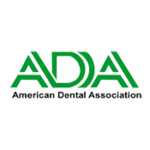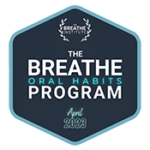Bad breath, scientifically known as halitosis, can be a symptom of several different things. It could be an indicator that your oral hygiene practices need to be brushed up, or it could be a sign that you have some larger lifestyle practices that need reevaluating. Here’s a look at the most common causes of bad breath and ways to help reduce this troublesome symptom.
You Are What You Eat
When it comes to your breath, the foods you ingest on a regular basis really make a difference. As is commonly known, strong smelling foods like onions or garlic will cause your breath to smell strong. The reason for this is that these foods get into your bloodstream and travel to your lungs where they are exhaled in your breath. Onion or garlic breath won’t go away until your body has thoroughly digested these foods.
Regular coffee and alcohol consumption can also lead to strong, stale breath. Due to the dry mouth that both beverages promote, saliva production is reduced, thereby allowing bad-breath causing bacteria to stay in your mouth longer. Smoking is, of course, another habit that will cause strong breath as well as other negative health issues.
With food or beverage related bad breath, it is good to get in the habit of drinking lots of water. Water is a naturally cleansing liquid that helps promote saliva production that in turn washes the mouth by dissolving odorous food particles and bacteria. Try to get in the habit of swishing your mouth out with water after meals if a toothbrush and floss aren’t handy. Also, studies have shown that after dinner breath mints can further agitate bad breath rather than squelching it. The sugar in the breath mint only further adds to the development of odor producing bacteria. Try a sugar-free chewing gum that’s sweetened with xylitol instead. Xylitol has been shown to prevent bacteria growth within the mouth, helping keep your breath fresh and healthy.
Oral Hygiene
As would be expected, bad breath can often be a result of poor dental hygiene. If you’re not flossing regularly in addition to brushing, food particles caught between your teeth will begin to attract bacteria and smell, causing bad breath. Make a habit of flossing regularly and brushing at least twice a day. Make sure that you’re cleaning your tongue as well. Your tongue can hold onto food particles, so it’s good to make a habit of brushing or scraping it regularly. Antibacterial mouthwashes can also be added to your daily regimen if the problem persists. If bad breath persists, a change in toothbrush might be in order, such as a Sonicare toothbrush that will keep your teeth free of plaque and other stubborn debris.
Persistent Bad Breath
If bad breath persists for an abnormally long period of time, it could be an indicator of a bigger concern. Make sure you’re maintaining good oral hygiene to keep down on plaque build-up. An overabundance of plaque can cause gum disease or irritation, which can, in turn, cause bad breath. Persistent bad breath can also be a symptom of a respiratory infection such as pneumonia, bronchitis, or a sinus infection. It can also be an indicator of liver or kidney problems and sometimes, even diabetes. Be sure to visit your dentist every 6 months. This will keep your mouth healthy and give you a chance to seek advice if health concerns such as bad breath persist.
Sources:
http://www.webmd.com/oral-health/guide/bad-breath
http://www.webmd.com/oral-health/features/bad-breath-good-and-bad-foods









